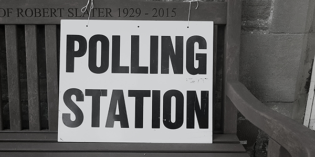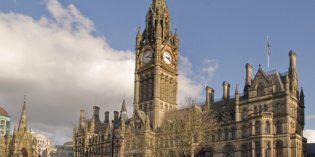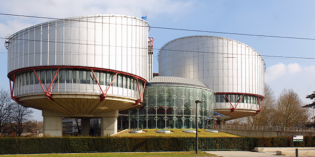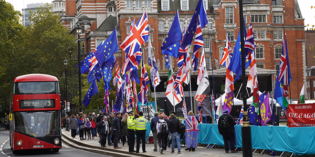
General election 2019: what are the parties saying about electoral reform?
During this general election campaign, there has been a disappointing lack of focus on what is required to reform democracy in the UK, when the public think it needs a lot of improvement. Ian Simpson from the Electoral Reform Society assesses which reforms have been promised in the parties’ manifestos, and argues that they should be given greater attention, given the lack of public trust in our democratic institutions.

General election 2019: preview of the West Midlands
The 2019 general election presents voters with a complex task of choosing which party can best represent their Leave versus Remain view, as well as their policy preferences or left/right ideology. In the run-up to the 12 December polling day, the Democratic Audit team are previewing the elections in each of the UK’s regions in turn. The West Midlands is a pivotal region, where marginal seats have switched between the Conservatives and Labour in recent elections. Here we focus on the key seats identified from the results in 2017, latest polling, and how the Leave-Remain background affects the contest here.

General election 2019: preview of the East Midlands
In the run-up to the 2019 general election, on Thursday, 12 December, the Democratic Audit team will be previewing the key contests, and political divides in each of the UK’s regions. The East Midlands is a crucial region in the contest between Labour and Conservatives, home to high-profile marginals in successive elections, and with a generally Leave-leaning electorate that the Conservatives are targeting. In this preview we focus on the marginal seats based on 2017’s results, the latest polling, and how the Leave-Remain dynamic changes the established electoral contests.

General election 2019: preview of North West England
The 2019 general election presents voters with a complex task of choosing which party can best represent their Leave versus Remain view, as well as their broader policy preferences. The picture is complicated further by distinct regional variations. In the second of our preview articles, the Democratic Audit team assesses the key contests and political divides in the North West of England, focusing on the seats identified from the 2017 results, the latest polling, and how insurgent parties and the Leave-Remain background affect the contest in each area.

General election 2019: preview of North East England
The 2019 general election presents voters with a complex task of choosing which party can best represent their Leave versus Remain view, as well as their policy preferences or left/right ideology. On the ground local circumstances vary a lot. In the run-up to the 12 December polling day, the Democratic Audit team will preview the elections in each of the UK’s regions in turn. We start with the North East of England, focusing on the key seats identified from the results in 2017, the latest polling, and how insurgent parties and the Leave-Remain background affect the contest in each area.

Book Review | In the Shadow of Justice: Postwar Liberalism and the Remaking of Political Philosophy by Katrina Forrester
In In the Shadow of Justice: Postwar Liberalism and the Remaking of Political Philosophy, Katrina Forrester explores how John Rawls’s justice theory became the dominant way of thinking about institutions and individuals in the second half of the twentieth century. This important work sheds light on the conceptual roots of modern political thought while at the same time disclosing its limits, writes Rahel Süß.

General election 2019: a different contest in Scotland
Ahead of the Westminster election on 12 December, James Mitchell explains how party competition in Scotland is shaped by interrelated questions of policy, competence, independence and Brexit, which for short-term tactical reasons places the Tories and SNP in direct competition, and squeezes Labour and the Lib Dems, while most likely leaving longer term issues unchanged until after the Scottish parliamentary elections of 2021.

General election 2019: what are the prospects for UK human rights, and the Human Rights Act after the election?
In past elections, attitudes to the Human Rights Act have marked a clear dividing line between parties, with key figures within the Conservative Party often supporting repeal of it and withdrawal from the European Convention on Human Rights. This has become intertwined with arguments around Brexit. Frederick Cowell assesses potential points of contention with human rights law in this election, including over army prosecutions, and argues that disputes over the HRA are likely to be pushed down the road, only to resurface in 2020, during any transition period after leaving the EU, and as prospects of a No Deal Brexit resurface.

What hope is there for societies undergoing democratic downgrades?
Since the 2008 financial crisis, European democracies have lurched decisively in a damaging direction. Democratic citizens have found themselves with less and less of a say in how their societies are being run, all while more and more severe measures have been enacted in their name, writes Benjamin Abrams.

General election 2019: what difference are the Unite to Remain and Brexit Party pacts likely to make?
The Unite to Remain alliance means the Lib Dems, Plaid Cymru and the Greens are trying to pool their votes to ensure a Remain-backing candidate is elected. But the Brexit Party’s decision to stand down their candidates in Tory-held seats makes this tougher. Heinz Brandenburg concludes that the overall effect of these pacts will be minimal.




 Democratic Audit's core funding is provided by the Joseph Rowntree Charitable Trust. Additional funding is provided by the London School of Economics.
Democratic Audit's core funding is provided by the Joseph Rowntree Charitable Trust. Additional funding is provided by the London School of Economics.